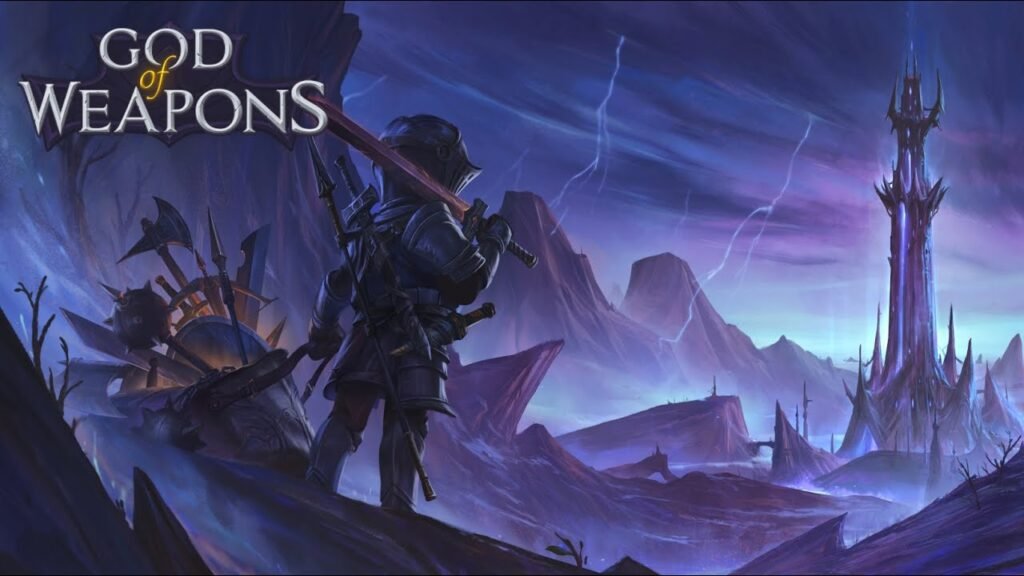The figure of the god of weapons has fascinated humanity for centuries, symbolizing power, protection, and mastery over conflict. From ancient mythologies to modern pop culture, the god of weapons represents not only the art of warfare but also the deeper human emotions tied to courage, justice, and strategy. In this blog, we will embark on a detailed exploration of the god of weapons, focusing on its origins, cultural significance, and enduring influence in American society and beyond. Whether in history, religion, or literature, this archetype serves as a potent metaphor for the complex relationship between violence and valor.
The Origins of the God of Weapons in Mythology
The concept of a god dedicated to weapons is as old as civilization itself. In many ancient cultures, gods of war or weapons were revered as divine protectors and fearsome warriors. For example, in Greek mythology, Ares is known as the god of war, embodying the brutal and chaotic aspects of battle. Conversely, Athena, goddess of wisdom, also carries the role of a strategic warrior, illustrating the dual nature of warfare — raw power and calculated intelligence.
In Hindu tradition, the god Kartikeya (also known as Skanda or Murugan) is celebrated as the god of war and weapons, symbolizing bravery and martial prowess. The Chinese god Guan Yu, often worshiped as the god of war and weapons, is a legendary figure of loyalty and honor, blending spirituality with martial skill. These mythologies highlight how the god of weapons serves both a literal and symbolic function, representing the divine sanction of warfare and the ideals that warriors aspire to uphold.
The Symbolism Behind the God of Weapons
Beyond the literal depiction of weapons, the god of weapons symbolizes much more. It represents authority, justice, and protection — a divine enforcer of moral and societal order. This symbolism is crucial in understanding the role the god of weapons plays across different cultures.
“The god of weapons often reflects a society’s values around conflict — whether it valorizes honor and courage or warns of the destructiveness of unchecked violence.”
— Dr. Emily Harrison, Stanford University
Thus, the god of weapons embodies a paradox: a bringer of destruction who also protects and maintains balance.
The weapons themselves—swords, spears, bows—carry symbolic weight. A sword may signify justice and authority, while a spear can represent precision and discipline. These weapons, wielded by a divine figure, underscore the belief that war and defense are not mere chaos but controlled, purposeful acts guided by higher principles.
The God of Weapons in American Culture
While rooted in ancient mythologies, the god of weapons has evolved to influence modern American culture, especially through literature, film, and video games. In American superhero narratives, characters such as Thor, who wields the mythical hammer Mjölnir, reflect the enduring appeal of divine weaponry and heroic combat. This modern iteration connects the ancient god of weapons to contemporary themes of justice and heroism.
Moreover, American history itself is punctuated by a deep respect for weaponry, from the Revolutionary War to modern military traditions. The god of weapons concept surfaces subtly in the cultural valorization of military heroes and the symbolism of firearms in national identity debates. This intertwining of mythological reverence and real-world weaponry illustrates the god of weapons’ ongoing relevance in American life.
Psychological and Sociological Perspectives on the God of Weapons
Delving deeper, the god of weapons also provides insight into human psychology and societal dynamics. The worship or admiration of such a figure reflects humanity’s complex relationship with violence — both fascination and fear. Psychologists argue that archetypes like the god of weapons help societies process the trauma of conflict and the need for security.
“Figures like the god of weapons are cultural mirrors, reflecting our collective struggles with power, aggression, and protection. They allow us to ritualize and make sense of the chaos that weapons can bring.”
— Dr. Marcus Levine, University of Chicago
This perspective reveals how the god of weapons is not only a mythological or religious figure but also a vital cultural symbol that shapes attitudes toward violence and peace. It underscores the importance of responsible weapon use and ethical considerations in warfare and defense.
The God of Weapons and Modern Ethical Debates
In contemporary discourse, the god of weapons metaphor extends to ethical debates surrounding arms control, military intervention, and the moral responsibility tied to wielding power. The symbolic weight of the god of weapons challenges us to think critically about when and how weapons should be used.
Scholars have drawn from this archetype to argue for a balanced approach that respects the need for defense while recognizing the catastrophic consequences of violence. This duality echoes the ancient tension between destruction and protection embodied by the god of weapons.
Conclusion: The Enduring Legacy of the God of Weapons
In conclusion, the god of weapons is far more than a mythological figure; it is a profound symbol embedded in human culture, reflecting our complex relationship with power, justice, and conflict. From ancient deities who ruled battlefields to modern heroes carrying symbolic weapons, the god of weapons remains a compelling lens through which to understand both history and contemporary society.
As we continue to navigate a world where weapons hold both protective and destructive potential, the lessons and symbolism of the god of weapons invite us to consider not just the might of arms, but the wisdom and ethics that must accompany their use. Ultimately, this archetype challenges us to strive for a balance where strength is tempered by justice, and power is wielded with responsibility.
If you want, I can help you break down the vocabulary, idioms, or grammar used in this blog to help you improve your English skills! Would you like that?
You may also read
ASR Health Benefits: Unlock Amazing Healthcare Advantages Now!


